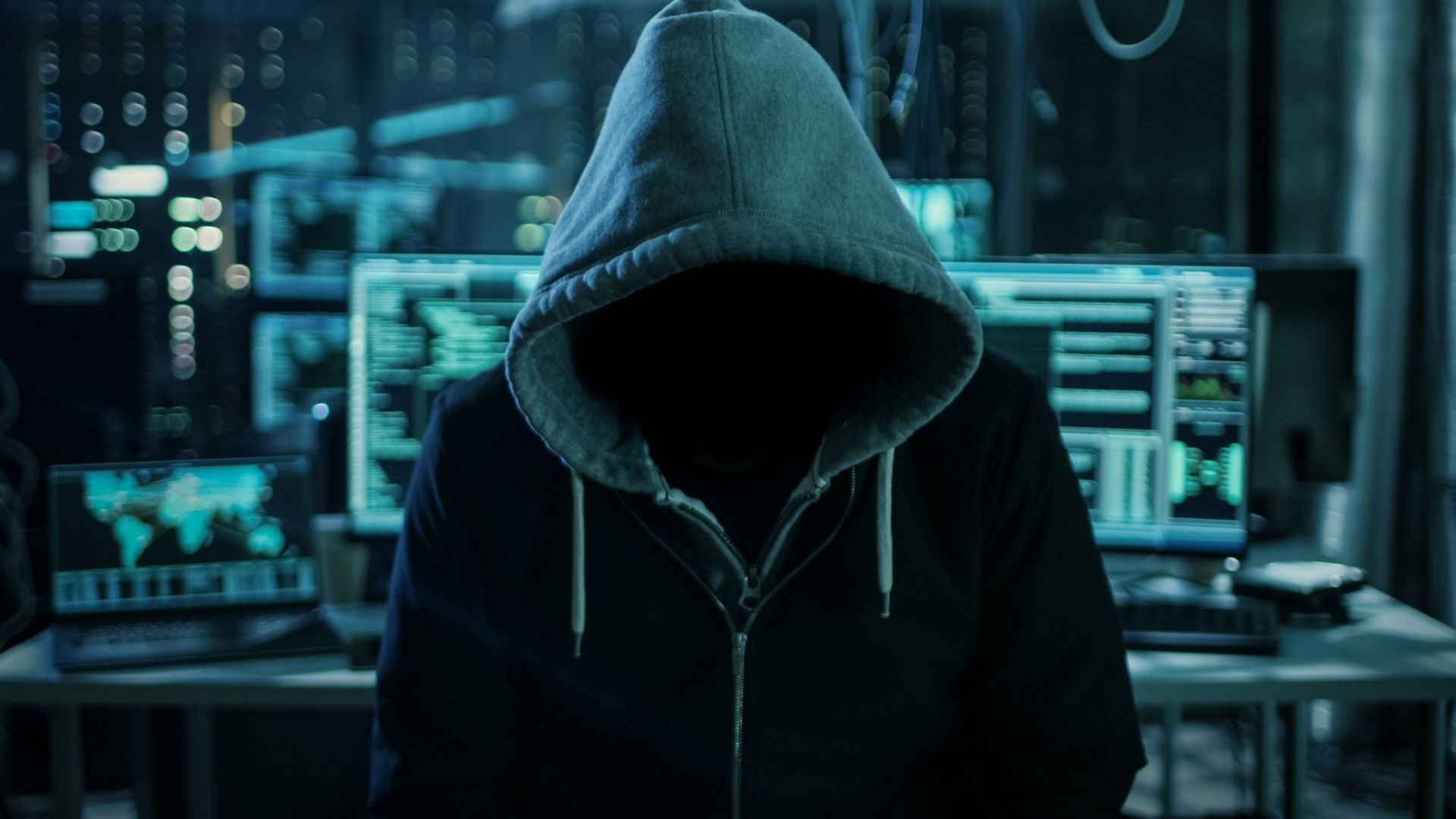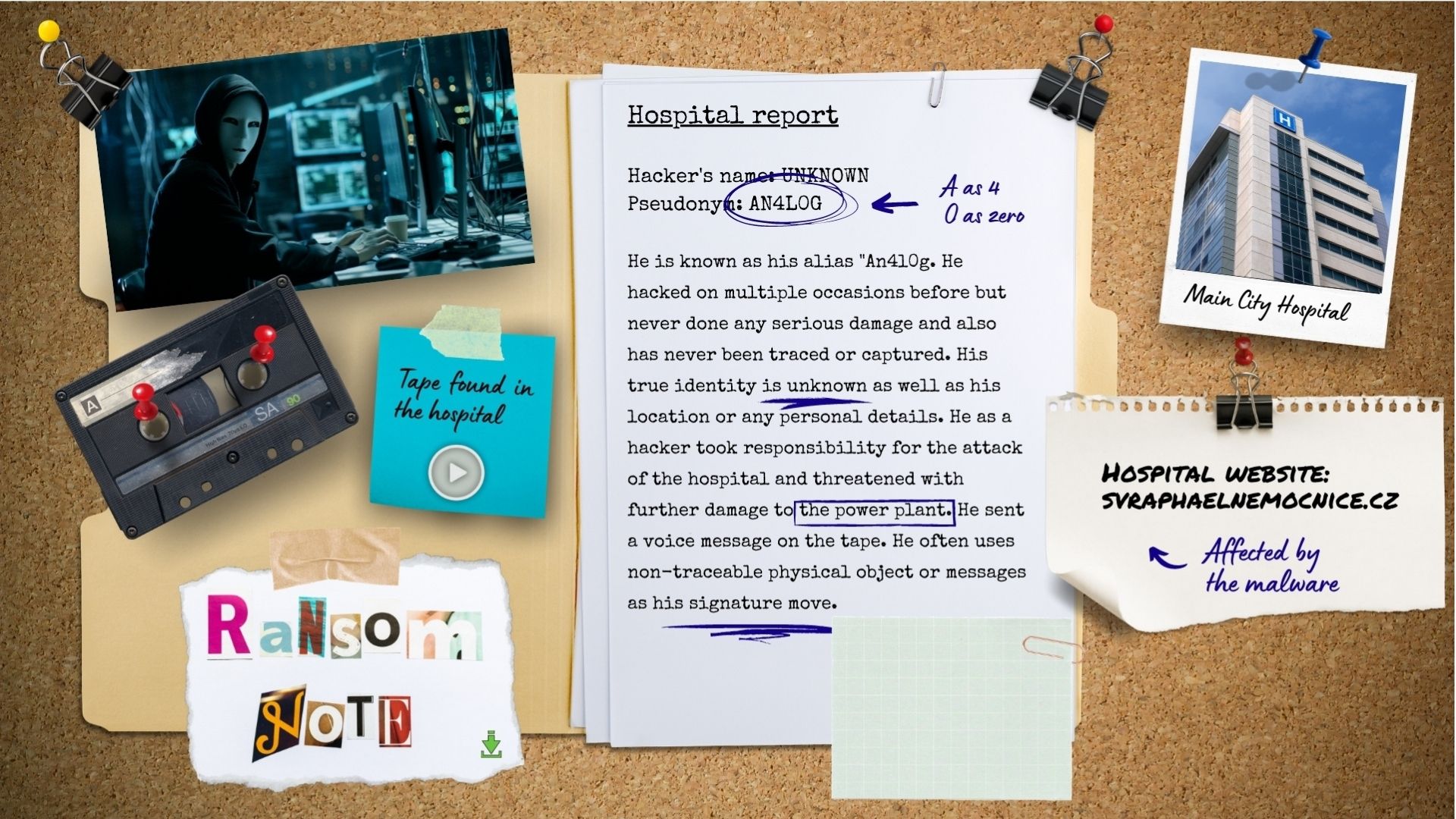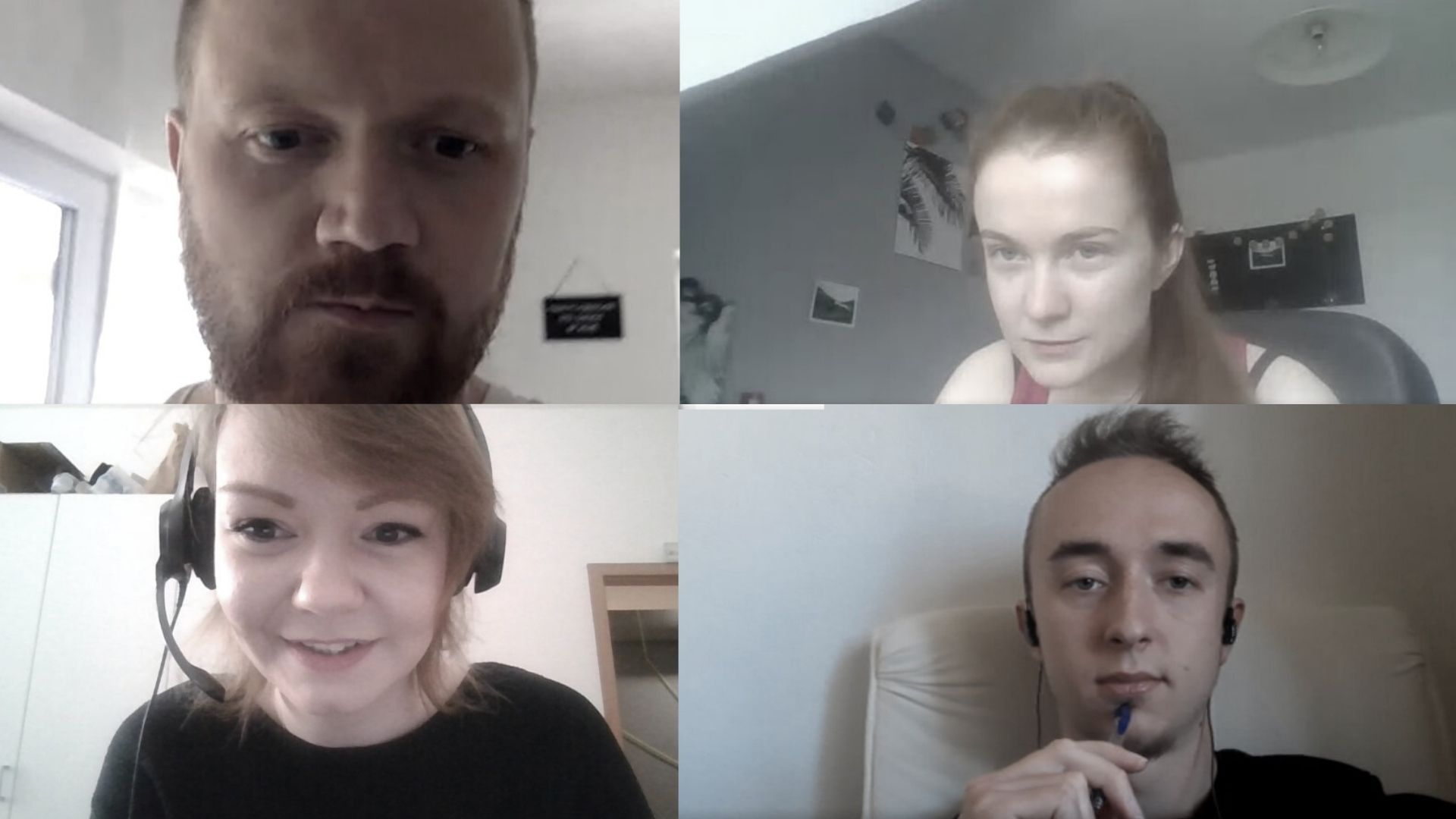About the challenges of creating a digital game
Why did you create an online game?
Well, in October when we were closed for the second time because of COVID, we were thinking about how we could create a new experience. We had plans to build physical games but we realized that they were not going to happen for some time. However, we wanted to bring something new to our players to show that we are still alive and full of ideas! So we created the Hack.
Why did you choose hackers as the topic of the game?
The topic of the game was very much driven by the digital format of the game. We knew we wanted to create an online game, so players would sit in front of the computer and solve puzzles and tasks by using it. We tried to come up with a scenario in which the interaction with the computer and also players connected online would feel as the natural course of action for them. If you investigate a murder you want to visit the crime scene to collect physical evidence - that would feel normal. Therefore, we picked a cyber crime as the core idea, which can be best investigated in cyberspace.
To be honest, at first we thought about putting the players in the role of the hackers. However, we quickly realized we cannot go down this road. Players who are not that skilled in computer science might feel discouraged by some of the tasks that would mimic hacking, while others who actually understand programming and hacking could be disappointed by tasks that are only a mere illusion of the real thing. Also, hacking as such can be a morally controversial topic, which needs a really elaborate story to justify it and that might be difficult in the online format. Therefore we ended up with a scenario where the hackers are the bad guys and our players are cyber crime detectives trying to catch them. It has all the thrill of an investigation, but requires no more than basic computer skills and yet it's still connected to the world of coding and hackers.

What were the challenges of the virtual format?
From the start we were sure that we wanted to make the game easily accessible. Therefore to avoid any complicated software installation, the game is fully web based to make sure anyone can access it from anywhere. Another important point was to enable players to play at any time without upfront reservation needed - that is a big advantage compared to real life escape games. Wherever and whenever you have time, you can just decide to play and after a few clicks you are ready to go!
Similarly to all our games, we wanted to create an immersive experience which would create the atmosphere of a real life investigation. In escape games, if you want to make your players feel like space heroes you build a spaceship around them. In this digital world we wanted players to feel like real life detectives so we designed the experience as realistic as possible. The game requires players to do things a real investigator would likely do: review evidence, read investigation documents, visit hacked websites, decipher codes to trace the hackers, listen to audio and video files and also interact with existing online tools - such as a flight tracker. It was an important design decision to bring elements of the real world into the game and interesting online tools the players can interact with. It gives the entire experience another layer of realism and credibility. Of course there are limitations to this format, as we cannot influence the physical environment of the players, but we believe the game itself can deliver the mood we intended to achieve.

Were there unexpected problems during the development process?
The game is not optimized for mobile phones or tablets, even if it is a very reasonable requirement these days. We tried to come up with a solution but we would have to sacrifice too much from a design point of view. Therefore we had to stick with the PC only format - at least for now. So a laptop or a desktop computer with an adequate screen is needed to fully enjoy the experience.
Another challenging part of the development was to make the purchase of the game and the team creation process user friendly. It is really easy to overcomplicate these processes to make them feel safe but it can also discourage players if it's too complex. We had a few iterations, but I believe at the end we managed to simplify it as much as possible. Players can purchase the admission code for the game in our e-shop and use it to create their game on the website. Afterwards, they can invite their team members to the game. We tried to make sure that the process is as intuitive as possible, however we still plan to create a video tutorial just to make sure players know what to expect.

Did you change anything after testing the game?
Oh, yes! The first tests brought some unexpected results. We thought this game would be 1-1,5 hours long and it turned out to be a 3-4 hours game! On one hand we had to restructure the digital evidence board, which is the starting point of the game, to make sure players get a more digestible overview of information about the case at the beginning of the game. With this step we shaved off quite some game time and eliminated the source of players’ frustration. On the other hand communication online between players is just much slower than in real life and we did not take that into consideration. However, after talking to the teams it turned out they did not mind the longer game but we needed to set expectations right - if its a 2-3 hours game, players need to know that upfront. We did consider reorganizing the entire game or even cut content, but at the end we decided that the longer game time might be a good thing in this online format. In usual escape games it's hard to make longer games because 1 hour is the perfect length for people to stay active and focused in a new environment. But with this digital format players are playing from the comfort of their home and also they can take a break when they need and then come back to it whenever they are ready. So at last we decided this medium is perfect to finally make a longer player experience!
Another challenge that turned up during the tests is that due to the novelty of the format players were rather uncertain how to start and use the game - there are a few differences versus real escape games, for example the automated hint system. We realized that we have to provide a quick introduction to the players on how to interact with the game, but we do not have the luxury of a real person briefing the teams about the specifics. At last we ended up with a few visual tips on how to play the game. These are short enough to flip through just before the game, but give enough information to understand how to start. Also players can return to these tips during the game.
How did players react to the automated hint system?
Better than we first expected! But again, we had a few iterations until we found the final solution. As there is no live game master accompanying the teams we knew from the start that players would have to use an automated system. First we developed a chat-bot that was embedded to the main page - whenever players needed a hint they could ask for it in this chat. It was already ready, when in the middle of December a new law was passed in the EU that basically prevented us from embedding an automated chat in an external page. It took us a couple of days to realize why it did not work anymore. So, we had to start over and this time we settled for a built in system. A four-digit hint code is available on every platform - distinctive from the game, but not disturbing. When players insert this code to the hint field it triggers the flow of hints. For every code they get a selection of 1-3 hints – the first one is the most cryptic, the last one is the most direct help. But what if the hint is not enough? Well, we realized it's vital that players can check the solution as well. We were a bit afraid that if it's easy to get a hint, people will overuse it. But no, players are cautious as they still want to enjoy their game!
Of course, there are also drawbacks of the automated hint system. Sometimes players click on Hint 1 and they get information they already know. An automated system cannot be tailored as much as a real life game master who is watching the game and knows just the right hint to give. But this is the trade-off for the “play anytime from anywhere” freedom. However, players seem to be understanding and use the hint tool sensibly for the game. Actually, some players particularly appreciate that they are in control even about when to get a hint.

What is the reaction of the players to the game?
Whoever gets to play the game seems to love it! However, the novelty of the format seems to be discouraging for some people. It is closest to an escape game experience, yet there are some differences as we mentioned before. It's also not a video game in the usual sense. So it's hard to put it into a well-defined category. Therefore it seems that some don't trust the format as they are not sure what to expect. But if you love escape games, you will enjoy this game, too! Just give it a try!
Do you have any future plans for this online format?
For now we are tweaking the teambuilding version of the game. We created a shorter, one-hour version of the game which is of a more appropriate length for teambuilding events. We already had a few events in December and January. The major difference is that during these events we have real game masters helping the teams. It's crucial because these events usually have a more strict schedule required by the companies so timely and prompt hints are necessary from the game masters who try to keep players on the right track, game flow and time-wise. Right now, we can arrange events for up to 100 players at the same time, however, we are working on some extra modifications which would allow us even more participants at the same time. Other than this, some players have already asked if we are planning another online game, so we will see!
The interview was given by Krisztina Gál-Csalami, one of the game designers from MindMaze Prague escape games.
